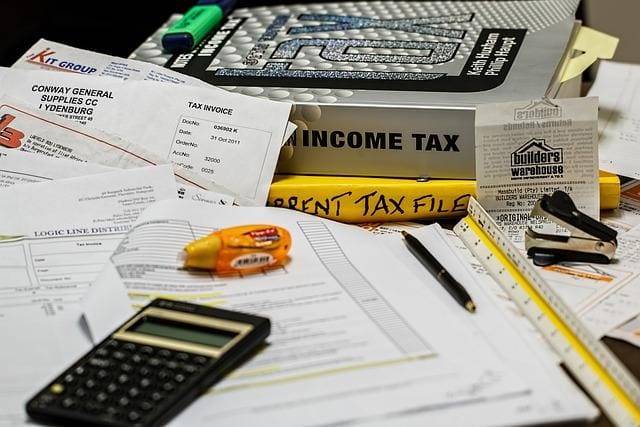A United States Department of Agriculture’s latest Agricultural Foreign Investment Disclosure Act (AFIDA) report indicates that over 40 million acres of agricultural land in the US is under alien ownership. These statistics were based on 2021 data, which suggests a potential increase in the acreage of farmlands owned by foreigners.
As a foreign investor with real estate property in the United States, you might want to dispose of your asset for whatever reason. When such a time comes, it will help to familiarize yourself with your tax obligations.
This article delves into a federal tax applicable to foreign investors known as FIRPTA, focusing on recent changes to this taxation.
What Is FIRPTA?
The Foreign Investment in Real Property Tax Act (FIRPTA) is a withholding tax levied on the profits generated from selling real estate properties in the US owned by foreign nationals. FIRPTA Withholding is a federal tax, which means it’s payable directly to the Internal Revenue Service (IRS).
This law took effect in 1980 as part of elaborate measures to ensure all alien investors remit their fair share of taxes to the IRS. It requires foreign real estate property owners to pay a 15% withholding tax on the profits accrued from each sale.
FIRPTA applies to all real estate assets, including farmlands, buildings, and stocks. The law applies to real estate transactions, including sales, exchanges, gifts, redemptions, and liquidations.
Tracking Down the History of FIRPTA
FIRPTA was enacted 1980 as Subtitle C of Title XI within the Revenue Adjustments Act 1980.
Now, the idea behind FIRPTA’s adoption was to level the tax playground for foreign and domestic real estate investors.
The law was also designed to guard against potential financial malpractices that could arise when alien property owners dispose of their investments.
Growing concerns about large-scale purchases of United States farmlands also inspired the enactment of FIRPTA laws. By implementing these regulations, the US government could control land use between domestic and alien developers more effectively.
There may not be much report on the extent to which FIRPTA has achieved objectives two and three. However, this act has been remarkably effective in revenue generation from the disposition of foreign-owned real estate properties.
Exploring the Recent Changes to FIRPTA
The most notable change to FIRPTA withholding was occasioned by the Protecting Americans from Tax Hikes Act of 2015, also known as the PATH Act.
Before the enactment of the PATH Act on December 18, 2015, foreign real estate investors were federally mandated to pay a 10% withholding tax on the gross proceeds from disposing of their assets. The 10% was changed to 15%, effective February 16, 2016.
On March 23, 2018, President Donald Trump signed the Consolidated Appropriations Act of 2018, commonly known as the Omnibus Act.
The Omnibus Act was an omnibus government spending bill that suggested disruptive revisions to previously enacted tax laws. It provided an excellent opportunity to review and possibly modify the FIRPTA act, primarily due to widespread concerns that the law deterred foreign investors from purchasing real estate property in the US.
However, political differences thwarted what could have been meaningful reforms to the FIRPTA Act. Nonetheless, the bill necessitated technical corrections to the PATH Act of 2015, mainly about FIRPTA and the Qualified Foreign Pension Funds (QFPFs) Acts.
Under the new concept, all QFPFs would be exempted from paying FIRPTA withholding. There was also a clarification that QFPFs would not be deemed nonresident alien individuals or foreign corporations within the framework of FIRPTA. In other words, a QFPF isn’t considered a foreign entity when determining if a real estate investment trust (REIT) is domestically controlled.
This clarification came as excellent news for REIT investors. Previously, any individual or corporate alien REIT investor would pay 15% for disposing of their shares in these trusts. But now that the REIT is domestically owned, investors would pay taxes at the same rate as domestic income earners.
There was yet another unsuccessful shot at repealing the FIRPTA Act in the 116th Congress through a bill introduced in the House of Representatives.
Dubbed the “Invest in America Act” (H.R. 2210), the bill garnered the support of commercial real estate stakeholders and several high-profile cosponsors on the Ways and Means Committee. Advocates of H.R. 2210 believe the bill would spur growth in the US real estate industry by stimulating demand for foreign investment.
Other Exceptions to FIRPTA Rules
FIRPTA’s 15% withholding tax is inapplicable in certain circumstances.
First, foreign corporations are subjected to a withholding tax of 21%.
Limited liability companies (LLCs) are exempt from the 15% rule if they partner.
Alien investors based in countries that have enforced tax treaties with the United States do not pay FIRPTA withholding tax either. These include Canada and multiple European Union (EU) countries.
Lastly, FIRPTA withholding depends on the property’s value and nature. Foreign real estate investors only pay the 15% withholding tax if the disposed of property generates income exceeding $300,000. Besides, the original 10% applies to personal residences sold for between $300,001 and $1,000,000.
Final Word
FIRPTA has witnessed some reviews over the years. Most of these changes were marginal, whereas some have had far-reaching implications. As a foreign real estate investor, the trick is to keep updated on all emerging FIRPTA changes to be at par with your tax obligations.

